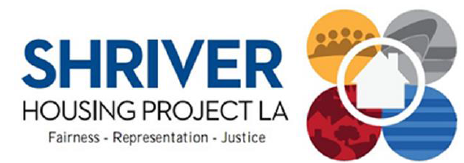
Through the Shriver Landlord Tenant Clinic, Loyola Law School students learn to help struggling tenants fight unfair evictions—and their help is needed now more than ever. In a state where rents increase at twice the national average, in a city facing an unprecedented housing shortage, and at a time of economic disaster precipitated by a global pandemic, the number of Californians who have fallen behind on rent during 2020 has risen to 600,000. With the statewide moratorium ending February 1, experts warn that an “eviction tsunami” is fast approaching.
When tenants have legal representation, however, their chances of avoiding homelessness due to eviction increase more than 70%, according to the Department of Consumer and Business Affairs. That’s where the Shriver Landlord Tenant Clinic steps in. In partnership with the Shriver Housing Project and under the supervision of Neighborhood Legal Services of Los Angeles attorney Andrés Rapoport, clinical students like Farah Modarres (’22) provide vital protections to some of Los Angeles’s most at-risk residents. Just last semester, Modarres helped a 73-year-old client with a disability whose landlord had formally agreed to a September 2020 move-out date. Because of his medical condition and COVID-19, the client had not been able to secure new housing in time and faced the prospect of being left unhoused. Modarres argued to the landlord that, under the federal Fair Housing Amendments Act and the state Fair Employment and Housing Act, he was required to provide reasonable accommodations to people with disabilities—in this case, more time for the tenant to find a new home. Thanks to this advocacy, Modarres was able to extend the client’s tenancy for four more months, enough time for him and his full-time caretaker to find new housing. The experience made an impact on Modarres, too. “I’m incredibly grateful to have been a part of the essential work at the Shriver Housing Project,” she says. “Particularly during this time of COVID-19, I learned the critical necessity of advocating for vulnerable clients to ensure their voices are heard.”